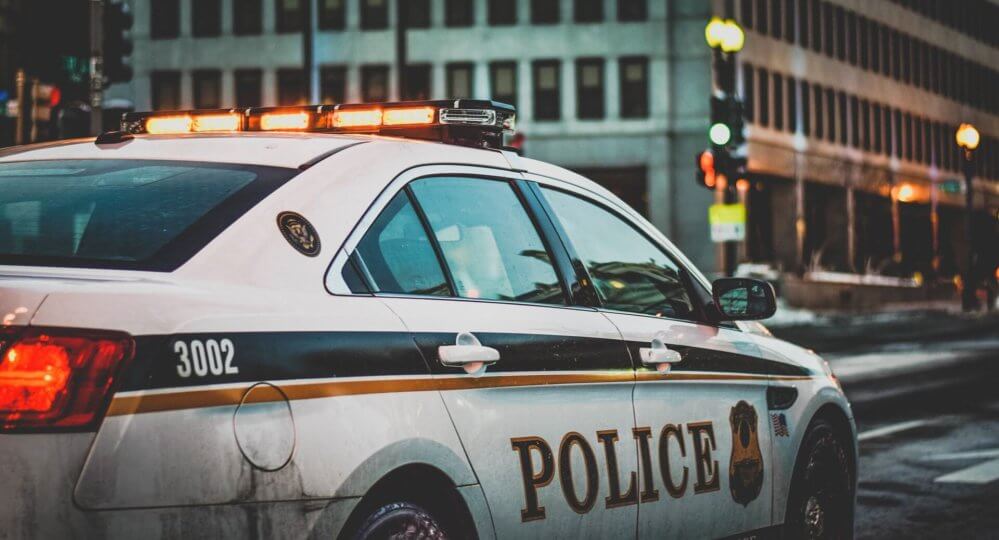
The Virginia House bill, HB5099, passed through its first Senate committee on Wednesday.
RICHMOND-Supporters say it’s a needed tool. Opponents call it too dangerous to use. No knock warrants are easily one of the most controversial topics brought up in this year’s special session. On Wednesday, the Virginia General Assembly took another step toward banning the practice, as HB5099 passed through the Senate Judiciary Committee.
Originally approved by the House Sept. 4, HB5099 would change how police handle a search warrant. First, the entire “no knock” practice would be banned. Law enforcement officers would have to clearly state “police, search warrant,” before entering a building. Beyond that, there would be a time constraint.
“[The warrant] shall be executed only in the daytime unless a judge or magistrate, if a judge is not available, authorizes the execution of such search warrant at another time,” the bill states.
Basically, unless officers can convince a judge otherwise, all search warrants would have to be served during the day. Let’s be clear: we said search warrants. This does not change anything for arrest warrants. There is an interesting exemption, however. If a search warrant is for “the withdrawal of blood,” the time limit doesn’t apply, according to the bill.
“A search warrant for the withdrawal of blood may be executed at any time of day,” it states.
If you’re wondering about that last sentence, think about DUI arrests. Officers need a signed search warrant in order to get a blood sample in those cases.
If officers don’t follow the procedures outlined in the bill, then any evidence seized will be declared inadmissible. Very clearly, the bill states “any evidence obtained from a search warrant in violation of this subsection shall not be admitted into evidence for the Commonwealth in any prosecution.”
Where Did No Knock Come From?
In most cases, law enforcement officers have to announce their presence before entering. The Supreme Court made this clear in the 1958 case Miller vs. United States. But the federal government stepped in and made an exception in the 1970s, arguing that “an earlier version of the “24-hour drug search” statute, 21 U.S.C. § 879, had expressly authorized the issuance and use of warrants authorizing officers to break open doors and outer windows without prior announcement of authority or purpose in certain searches for illegal drugs.” That quote comes from a paper written in 2002 by Patrick Philbin, then the Deputy Assistant Attorney General at the US Department of Justice. By 1974, however, Congress scrapped the practice. It was repealed by a Senate amendment to an appropriations bill.
The no knock concept didn’t stay dead for long, as Congress revived it in the 1980s as part of the war on drugs. While it’s hard to trace all cases from the ‘80s until now, a look at records from 1999 to 2020 show 16 controversial events involving no knock warrants and at least 40 deaths, including police and civilians. The most recent happened in Louisville on March 13 of this year, when police shot and killed Breonna Taylor in her home. Believing the officers were intruders, Taylor’s boyfriend Kenneth Walker opened fire. The officers fired over 20 shots and hit Taylor eight times.
Looking Towards The Future
The idea behind the Virginia House bill, HB5099, is to stop things like this from happening in the commonwealth. The bill’s creator, Del. Lachrecse Aird (D-Petersburg), said Wednesday she hoped this would be a step toward completely ending the practice.
“Ultimately it’s my hope that we could move towards a full ban on no knock search warrants,” Aird said. “The warrant is dangerous to both law enforcement and individuals that law enforcement is coming in contact with.”
In fact, it’s a tool some law enforcement barely use. In the Aug. 26 meeting of the House Courts of Justice Committee, the group heard testimony from Wayne Huggins. Huggins serves as executive director for the Virginia State Police Association.
“This is a technique that is used extremely rarely, at least for the state police,” Huggins said on Aug. 26. “In my years as superintendent of state police, I can’t recall an instance that we used the no-knock warrant. And I think at least in the case of the state police, for our folks, the only time we would ever consider using such a technique is if we felt there was a life in jeopardy.”
HB5099 passed by an 8-4 vote Wednesday. Now it goes to the Finance and Appropriations Committee, where any and all costs will be examined. There’s no set date for a hearing yet.

VIDEO: Your support matters!
Your support matters! Donate today. @vadogwoodnews Your support matters! Visit our link in bio to donate today. #virginianews #virginia #community...

Op-Ed: Virginia’s new Democratic majorities pass key bills to improve your lives, but will Youngkin sign them?
The 2024 Virginia General Assembly regular session has wrapped up. It was a peculiar session from the outset, with Democratic majorities in the...

Op-Ed: Why Virginia Needs A Constitutional Amendment Protecting Reproductive Freedom
Virginia’s recent election season in 2023 drew in eyes from all over the country. Reproductive freedom was on the line and Virginia remained the...

From the state rock to the state flower, here’s how Virginia got its symbols
Have you ever wondered why the Dogwood is the state flower? Or how the cardinal became the state bird? We’re here to answer those questions and more...

VIDEO: Second-gentleman Douglas Emhoff gives speech on reproductive freedom
Second gentleman, Douglas Emhoff touched on reproductive freedom not only being a woman's issue but "an everyone's issue" during the Biden-Harris...

Glenn Youngkin and the terrible, horrible, no good, very bad night
Election Day 2023 has come and gone, and while there are votes to be counted, one thing is perfectly clear: Virginians unequivocally rejected Gov....




